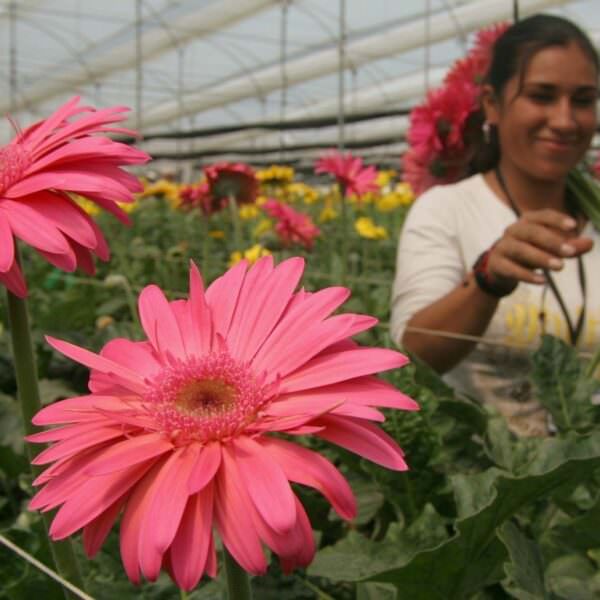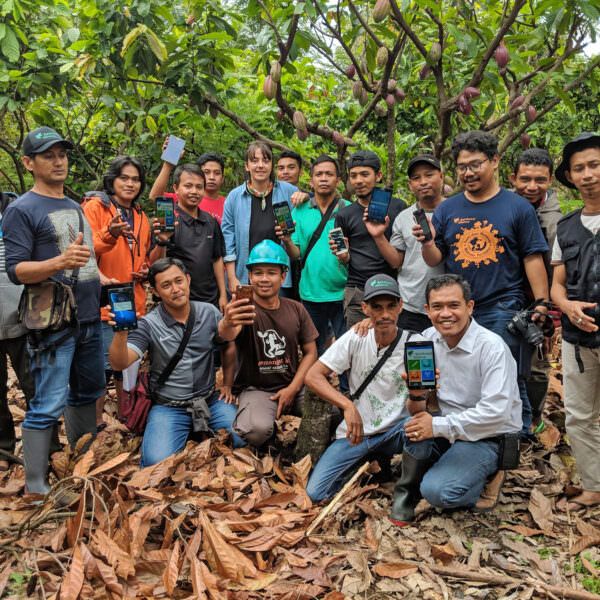For retail and foodservice companies, it is crucial to understand their supply chain down to the farm level to best assess potential risks. The services and products that the Rainforest Alliance offers can support your journey towards more sustainable supply chains. Below you can find more information about what you can do, how we can help you, and the practical steps you need to take.
Rainforest Alliance Certification Support
Do you want to foster responsible business practices and transparency through the supply chain for your private label or non-branded product? We can help you. Register for our Certification Program!
1. Which retail and foodservice companies need to become part of the Rainforest Alliance Certification Program?
A retailer or foodservice company should register for certification in RACP, the Rainforest Alliance’s Certification Platform, if the entity is directly responsible for purchasing certified products and manages supplier contracts and relations directly. In other words, if a retailer actively purchases Rainforest Alliance Certified products for a brand it owns (private label brand) or actively purchases Rainforest Alliance Certified non-branded products in its supply chain, the retailer is in scope for certification.
2. Certification steps overview
Our Quick Start Guide Registration for Retailers outlines the registration process for our Certification Program.
3. What certification requirements apply to retailers and foodservice companies?
A specific subset of supply chain requirements of the 2020 Sustainable Agriculture Standard applies to retailers and foodservice companies that are looking to become certified. This list is specified below. You may need to comply with additional requirements if your entity or location performs other activities than retail, such as processing or warehousing, or if your entity is the Certification administrator for other sites (multi-site certification) that perform those activities. If this is the case, more requirements will apply to your company.
List of requirements for individually certified retailers and foodservice companies that only conduct retail activities:
- Requirement 1.1.4: Due Diligence
- Requirement 1.1.5: Committees (only for grievance mechanism)
- Requirement 1.2.2: List of suppliers
- Requirement 1.4.2: Self-assessment
- Requirement 1.5.1: Grievance mechanism
- Requirement 2.1.13: Validity of Rainforest Alliance claims
- Requirement 2.2.2: Traceability
- Requirement 2.2.4: Approval for trademark use
Retailer or foodservice companies that are also the actors in the supply chain responsible for paying and/or recording the Sustainability Differential and/or Sustainability Investment (SD/SI) are also required to comply with requirements 3.2 and 3.3. The responsible for the payment of SD/SI is specified in the applicability table in the column titled ’SC CH responsible for SD/SI’ on this webpage.
- Requirement 3.2: Sustainability Differential
- Requirement 3.3: Sustainability Investment
4. Rainforest Alliance Certification Platform
If you are registering to obtain Rainforest Alliance certification, please go to the (RACP). Provide your company details, including the crops that you work with, your location and contact information and whether you already have a pre-merger Rainforest Alliance and/or UTZ account ID. With this information, you can open an account. You will then have to follow the process outlined in the platform, to get a license and show compliance with the applicable certification requirements for retailers.
5. Self-assessment guidance
Download, complete and upload the self-assessment
To download your self-assessment, follow the steps in the RACP User Manual for Supply Chain Actors.
6. Guidance for the interpretation of the requirements
This general guide aims to assist Certificate Holders with the implementation of the Rainforest Alliance Sustainable Agriculture Standard by providing clarifications to interpret the requirements and the evidence required for compliance. It includes the following content for each of the requirements of the Standard:
- Guidance on applicability
- Purpose
- Implementation guidance
- Evidence and indicators
- Annexes and other references
Support Outside of Certification
The Rainforest Alliance also supports retail and foodservice companies outside of certification:
Rainforest Alliance trademarks
As an organization working with the Rainforest Alliance, you have the opportunity to promote your sustainability commitments by using and promoting our seal on your products. To do so, you need to obtain approval from the Rainforest Alliance. Read more about the process and requirements here.
Partnering with the Rainforest Alliance beyond trademark use or certification
Our tailored services offer you a chance to engage in projects beyond certification. For example, you can map your supply chains and the risks involved, and engage in projects related to sustainability issues we focus on such as regenerative agriculture, carbon measurements, landscape restoration, and living wage, among other topics. Interested? Write to our tailored services team to get started.
Providing marketing support to make your certified products stand out
We can help you tell your sustainability story in a way that fits your brand values and resonates with your audience. We encourage you to look at our Marketing Examples from Partner Companies, reach out to our marketing team at marketing@ra.org or get our ready-to-use Company Marketing Communication Toolkit for Point of Sale.
FAQ for Retailers and Foodservice Companies
Certification – Registration
Certification – Supply chain risk assessment
Certification – License agreement
Certification – Royalties
Claim request approval
Traceability
Shared responsibility: SD and SI – General
Shared responsibility: SD and SI – Tea
Please visit our webpage Shared Responsibility: What It Means for the Tea Sector for any questions you might have about SD and SI for tea.



